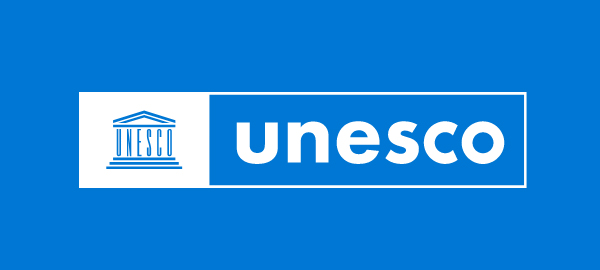
16 – 23 May 2025

Dear readers,
The UAE is going to have ‘the world’s largest AI campus outside the USA‘
In the past week, we have seen the United Arab Emirates surging to the forefront of the global AI and infrastructure race, with announcements such as the world’s largest AI campus outside the USA, a 10-square-mile, 5-gigawatt facility in Abu Dhabi led by G42, backed by a $200 billion deal sealed during President Trump’s Gulf tour as part of the US-UAE AI Acceleration Partnership.
Further amplifying this momentum, G42 and OpenAI are collaborating on the Stargate Initiative, a massive AI data facility. At the same time, du and Microsoft have launched a $544 million AI data centre to boost regional computing power. Meanwhile, the UAE’s EDGE Group unveiled an AI accelerator to advance defence and technology innovation.
Additionally, the UAE is opening to cryptocurrency, as Ripple has introduced cross-border blockchain payments in the United Arab Emirates, aiming to boost cryptocurrency adoption in the region.
Navigating cybersecurity’s turbulent sea
The cybersecurity landscape resembled a turbulent sea in the week behind us, with threats and policy shifts challenging AI governance and digital policy worldwide. Japan has taken a bold step forward, enacting its Active Cyberdefence Law to allow preemptive offensive cyber operations, marking a historic shift from its pacifist stance to counter escalating threats from state-sponsored actors.
Across the Pacific, US lawmakers are grappling with a reported one-day pause in offensive cyber operations against Russia, raising questions about strategic shifts in digital warfare amid geopolitical tensions.
In Europe, the Netherlands has expanded its espionage laws to include cyber activities, imposing up to 12 years in prison for digital spying, reflecting a broader push to secure critical infrastructure.
Adding to the turmoil, Coinbase, a leading cryptocurrency exchange, suffered a cyberattack costing up to $400 million, underscoring vulnerabilities in the private sector’s digital defences.

The race for space, quantum, and supercomputing
The global race for dominance in space, quantum, and supercomputing is accelerating. China is leading the charge with the launch of its first AI-powered satellites, forming an orbital supercomputer network designed to process vast datasets in space, bolstering its strategic edge in AI-driven defence and communications.
Meanwhile, Taiwan is intensifying its terrestrial efforts, unveiling a new NVIDIA-powered supercomputer to enhance its AI capabilities, confirming itself as a key player in the global tech supply chain amid rising geopolitical tensions.
On the quantum frontier, Google’s breakthrough with a new quantum chip, capable of simulating complex systems and hinting at multiverse-like computational possibilities, is a new transformative potential of quantum computing for AI innovation.
Digital policy highlights
The European Commission is taking significant steps to create a safer online environment for children by introducing draft guidelines under the Digital Services Act.
President Donald Trump is expected to sign the Take It Down Act, which will criminalise the sharing of explicit images, whether real or AI-generated, without consent.
The UK government has suffered a second defeat in the House of Lords over its Data (Use and Access) Bill, as peers once again backed a copyright-focused amendment to protect artists from AI content scraping.
Russia’s Ministry of Justice is working on legislation that would classify crypto assets as property, enabling their confiscation during criminal investigations.
Event reminder:
If you are based in Geneva, today, 23 May, is the last day to register for the luncheon debate with Doreen Bogdan Martin, Secretary-General of ITU hosted by FSPI, which will be held on Monday, 26 May. Overlapping with the luncheon is ILO’s webinar officially launching a new guide on the digitalisation and blending of training programmes. Monday also marks the start of the next TSAG meeting in Geneva, which will wrap up on Friday, 30 May.
Nestled in the middle of the week, on Wednesday, 28 May, is our briefing for diplomats on the UN80 Initiative, AI, and digital governance (for inquiries, contact us at geneva@diplomacy.edu.) Later in the day, UNHCR, UNDP, IOM, UNICC and the Permanent Mission of Switzerland will officially launch the Digital Hub of Treasury Solutions (DHoTS) during an event where participants will discuss how digital innovation is reshaping the future of aid delivery.
For the main updates, reflections and events, consult the RADAR, the READING CORNER and the UPCOMING EVENTS section below.
DW Team
RADAR
Highlights from the week of 16 – 23 May 2025
Investors are shifting into Bitcoin as long-term bonds lose their appeal as traditional safe havens.
Trade Ministers of the BRICS approved the Data Economy Governance Understanding, aiming to promote a fair data economy among BRICS nations and establishing a roadmap.
The firm acquired Cyprus-based A.N. Allnew Investments to gain regulatory approval and expand its reach under the EU’s financial regulations.
The lawsuit alleges an AI chatbot manipulated a vulnerable teen by acting as a therapist and romantic partner before he died by suicide in February 2024.
Horizon Europe backs African innovation and health projects
Finance officials say the new authority will help Pakistan lead the global blockchain race.
France denies accusations that it tried to pressure Telegram into political censorship.
Ion-based simulation offers a scalable quantum chemistry breakthrough.
The Senate has advanced the GENIUS Act after reaching a bipartisan deal on new stablecoin rules.
Coinbase declines ransom, offers $20 million reward for information on hackers.
Recently, 96 countries met at the UN to discuss AI-powered weapons, expanding the conversation to include human rights, criminal law, and ethics, with a push for legally binding agreements by 2026.
READING CORNER
Diplomatic theory says: follow orders. Practice shows: shape reality. Between theory and practice lies the diplomat’s quiet craft. Aldo Matteucci asks if theory can catch up.
What does ‘compromise’ truly mean, and why does the word so often carry negative connotations?
AI-powered tools from Google, IBM, and startups improve diagnostics, clinical documentation, and patient care, reducing clinician workloads and enhancing healthcare outcomes worldwide.
The Vatican’s potential role in mediating peace between Russia and Ukraine highlights its historical significance in diplomacy. Amid today’s geopolitical complexities, Pope Leo XIV’s initiative, alongside the Community of Sant’Egidio’s proven mediation successes, embodies the Vatican’s unique moral authority.
UPCOMING EVENTS
The event’s theme will be ‘Bridging the Digital Divide in the AI Era’.
The International Labour Organization (ILO) will host an online presentation to launch a new practical guide on the digitalisation and blending of training programmes, on 25 May 2025.
The International Telecommunication Union’s Telecommunication Standardization Advisory Group (TSAG) will hold its first meeting of the 2025–2028 study period from 26 to 30 May 2025 at ITU headquarters in Geneva.
The 17th International Conference on Cyber Conflict (CyCon 2025), organised by the NATO Cooperative Cyber Defence Centre of Excellence (CCDCOE), will take place from 27 to 30 May 2025.
The 15th edition of IGF Brazil (Fórum da Internet no Brasil (FIB15)) will take place from 26 to 30 May, 2025, at the Fiesta Bahia Hotel in Salvador, Bahia.
The International Telecommunication Union’s Telecommunication Standardization Advisory Group (TSAG) will hold its first meeting of the 2025–2028 study period from 26 to 30 May 2025 at ITU headquarters in Geneva, Switzerland.
The official launch of the Digital Hub of Treasury Solutions (DHoTS) will occur on 28 May 2025.

























